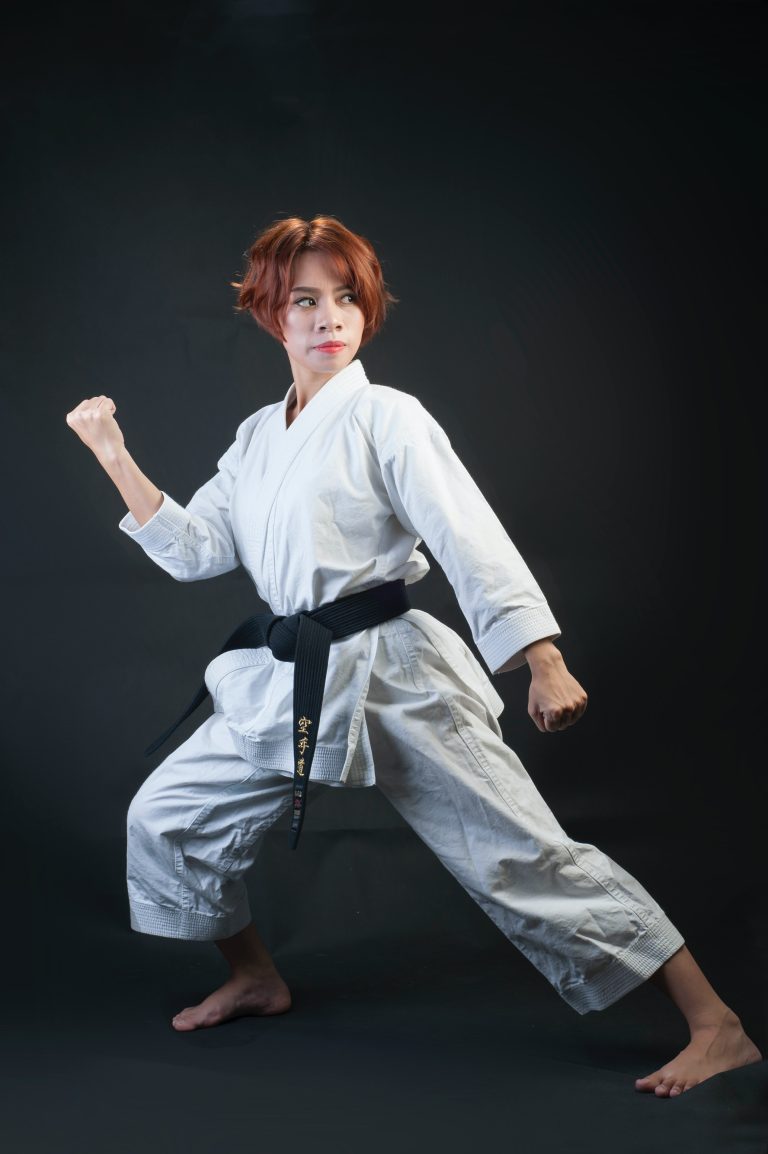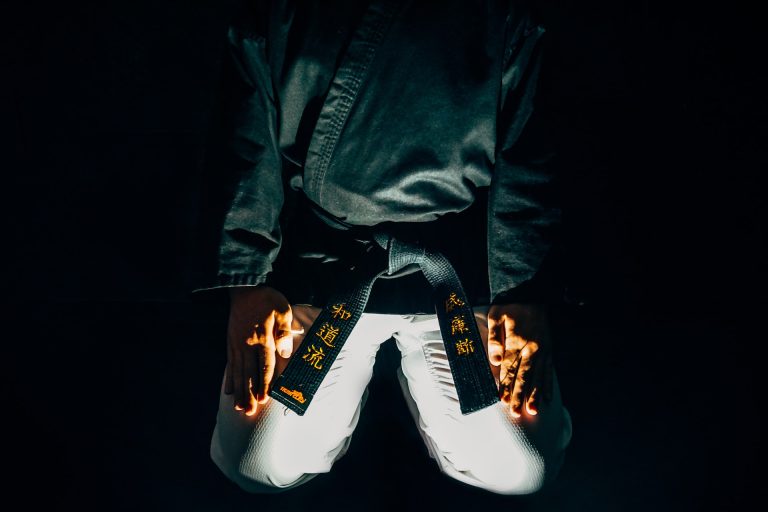What Does Karate Teach You?
Karate is an ancient Japanese martial art that has been practiced for centuries, and it is not just a physical exercise but also a practice that can help one grow emotionally and mentally. Karate’s long-term benefits go beyond the physical benefits, and it is essential to understand the many ways in which karate can shape one’s life for the better. In this blog post, we will explore the various lessons that karate teaches, both on and off the mat.
Discipline
One of the key lessons learned through karate training is discipline. Karate practitioners are expected to adhere to strict training regimens, including regular attendance in training sessions, proper conduct during training, and adherence to a healthy lifestyle. Karate training requires time, effort, dedication, and commitment, all elements that require discipline to succeed. Discipline helps to develop self-control, which translates into other aspects of life, such as work, relationships, and personal development.
Self-Control
Karate teaches self-control, the ability to handle one’s emotions and reactions to situations. Through practicing self-control, karate practitioners learn to think before they act, control their emotions and prevent themselves from lashing out in anger. Uncontrolled emotions can lead to trouble, particularly in conflict situations, and it is essential to be able to manage one’s emotions.
Self-Confidence
Another significant lesson taught through karate practice is self-confidence. Karate requires practitioners to challenge and push themselves, which helps build their confidence. Karate students learn to believe in themselves, even in challenging situations, and this self-confidence translates into other parts of their lives as well. By developing self-confidence, practitioners can become more successful in their personal and professional lives.
Respect
Karate also emphasizes respect. In karate training, practitioners learn to respect both their trainers and their peers. Respect is built by showing proper etiquette, listening and following instructions, and avoiding confrontations. These respectful habits developed through karate training help karate students be more successful outside of the dojo as well, building respect in their interactions with others.
Exercise and Physical Benefits
Of course, it would be remiss to discuss the benefits of karate without mentioning its physical benefits. Karate training requires a significant amount of physical exercise, which helps practitioners develop their bodies and maintain good health. Regular training helps improve cardio, strength, flexibility, agility, balance, and coordination, leading to a healthier and more robust physique. Additionally, through karate training, practitioners develop quicker reflexes, improving reaction time and physically defending oneself.
What Does Karate Teach You?
Most Frequent Asked Questions
Karate is a popular martial art that originated in Okinawa, Japan. It has become popular all over the world for its self-defense techniques, discipline, and physical fitness benefits. Karate not only helps you to protect yourself but also improves your overall physical and mental health. If you are new to karate or want to learn more about the benefits of this martial art, you may have some questions in your mind. In this blog post, we’ll answer some of the most frequently asked questions about what karate teaches you.
What is the philosophy behind karate?
Karate is not just a physical activity; it is also a way of life. The philosophy behind karate is rooted in the Japanese concept of Bushido, which means the way of the warrior. It emphasizes the principles of discipline, respect, humility, and perseverance. Practicing karate can help you develop mental and emotional strength, as well as the physical strength necessary to face challenges in life.
What are the physical benefits of karate?
Karate is a highly physical martial art that focuses on quick and powerful movements. Practicing karate can help you develop strength, speed, flexibility, and agility. It can also help you improve your cardiovascular health and endurance. Regular practice of karate can help you develop better balance and coordination, leading to improved posture and overall body alignment.
What are the mental benefits of karate?
Karate is not just about physical fitness but also has important mental benefits. The practice of karate promotes mental discipline, focus and concentration, and helps to reduce stress and anxiety. It can also help to build self-confidence and self-esteem, leading to a more positive outlook on life.
What self-defense techniques can you learn through karate?
One of the main goals of karate is to teach practical self-defense techniques that can be used in real-life situations. These techniques include blocks, strikes, kicks, joint locks, throws, and grappling techniques. Karate teaches you to use your entire body as a weapon, allowing you to defend yourself effectively against an attacker.
What are the different levels of belts in karate?
Karate has a belt ranking system that indicates the level of mastery of the practitioner. The belts are ranked in the following order from beginner to advanced: white belt, yellow belt, orange belt, green belt, blue belt, purple belt, brown belt, and black belt.
What is the role of the sensei or instructor in karate?
The sensei or instructor plays an important role in guiding and training karate students. The sensei provides individualized instruction and correction, ensuring that students are progressing and improving in their skills. The sensei also teaches students the philosophy and principles of karate, emphasizing the importance of self-discipline, respect, and humility.
Is karate suitable for children?
Yes, karate is suitable for children of all ages. Karate provides an opportunity for children to develop physical fitness, self-confidence, and enhanced focus and concentration. It also helps children learn self-discipline, respect, and responsibility. Karate classes for children are taught in a fun and safe environment, with an emphasis on cooperation and teamwork.
How to Learn Karate: A step-by-step guide
Karate is a Japanese martial art that has become popular all around the world. It not only teaches self-defense but also helps one to improve their physical and mental health. Karate involves a series of moves, techniques, and katas that require practice and dedication. Here’s a step-by-step guide on how to learn karate:
Step 1: Finding a qualified instructor
Finding a qualified instructor is one of the most important steps in learning karate. A qualified instructor should have the necessary certification and experience to teach karate. You can start by checking with your local fitness centers, martial arts clubs, or search online for a reputable karate school in your area. When choosing an instructor, ensure that they have good communication skills, patience, and a passion for teaching karate.
Step 2: Learning karate basics
Once you have found a qualified instructor, you will start with learning the basics of karate. In karate, the basics include stances, punches, kicks, and blocks. These moves will help you develop coordination, balance, and flexibility. It is important to practice these basics until you can execute them correctly and confidently. This will form the foundation for learning more advanced techniques.
Step 3: Learning katas
Katas are pre-arranged patterns of movements that simulate a fight against imaginary opponents. Learning katas is essential in karate as it helps you develop discipline, concentration, and memory. It involves both physical and mental practice. Your instructor will start by demonstrating the kata, and then you will follow along. Once you have learned the kata, you will practice it repeatedly until you can perform it proficiently.
Step 4: Sparring
Sparring involves practicing karate techniques with a partner. It is more dynamic than katas and requires a higher level of skill and control. Before sparring, you will need to put on protective equipment such as gloves, shin guards, and a mouthguard. Sparring helps you develop your timing, distance, and strategy, and it mimics real-life fighting situations.
Step 5: Setting goals and grading
Karate has a grading system that determines your skill level. The grading system ranges from beginner levels to advanced levels. As you progress, you will need to set goals and work towards achieving them. This will help you stay motivated and focused. Your instructor will guide you towards achieving your goals and develop a plan to help you attain higher levels.
Step 6: Staying consistent and committed
Learning karate requires dedication and commitment. You will need to practice regularly and attend classes consistently. Consistency will help you develop muscle memory, improve your endurance, and perform techniques more fluently. Practicing karate will also help you build confidence, reduce stress, and improve your overall health.
In conclusion, learning karate requires finding a qualified instructor, learning the basics, practicing katas, sparring, setting goals, and staying consistent and committed. By following these steps, you will be on your way to becoming a skilled karate practitioner.
Inhaltsverzeichnis






